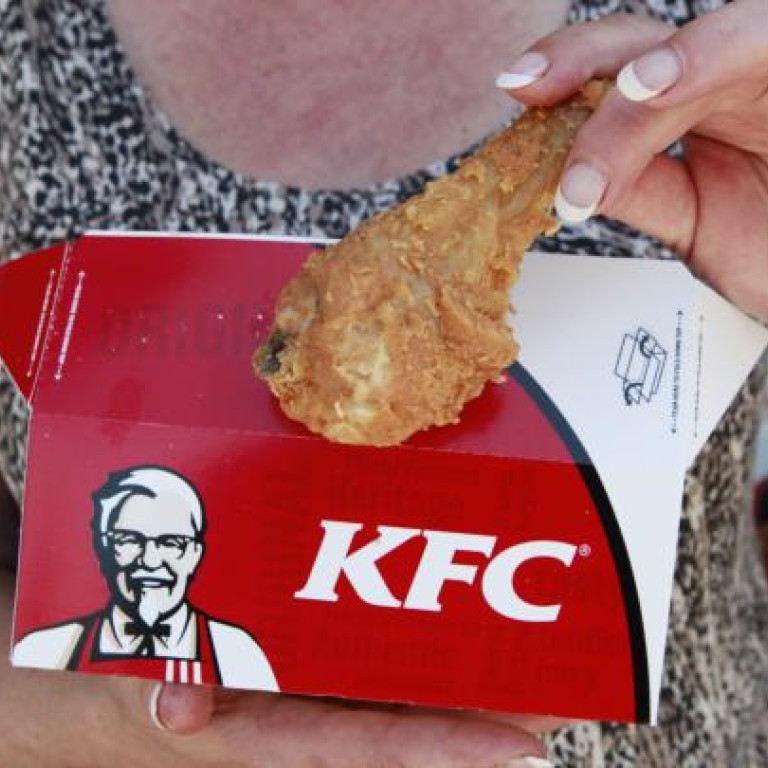
Drug-fattened chicken report stings chains
CCTV exposé prompts host of questions about checks on suppliers of KFC, McDonald's
Two of the best-known US fast-food chains were certainly not "lovin' it" on the mainland last week after a state television exposé thrust them to the fore of the country's heated debate over food safety.
The undercover investigation by China Central Television found that two Shandong chicken suppliers for KFC and McDonald's fed their chickens excessive hormones and antibiotics to reduce premature deaths and make them plump enough to butcher at just 40 days old. The chickens reportedly gained 2.5kg within 40 days of receiving appetite stimulants, such as dexamethasone, and at least 18 antibiotics, including some recommended only for human use, such as Ribavirin.
Butchering companies simply fabricated results when testing the meat for quality, the CCTV report said.
KFC, which receives 44 per cent of its annual revenue from China, quickly announced that it had stopped purchasing from the supplier and promised to co-operate fully with authorities.
McDonald's, which has already faced claims this year that it was selling food past its expiry date on the mainland, said costumers could "rest assured" chicken served at its restaurants was safe.
The CCTV report was actually the second to raise the issue of fast-growing chickens. Just a few weeks back, another media outlet published a report claiming that another supplier used by the two restaurants was similarly preparing chickens for the butcher in 45 days.
The called for authoritative tests on all chickens headed for the butcher. It demanded a detailed explanation from the fast-food chains on how their suppliers raise chickens, warning that the "toxic chicken" accusations would continue if restaurants failed to step up.
"Did KFC and McDonald's test the chicken supplied by these companies? Did they know that these companies had added a lot of hormones and antibiotics to the feed? Are these fast-growing chickens the result of modern science and technology, or toxic ones fed with chemicals?"
In response to the earlier report, KFC insisted that 45 days was the normal lifespan of that particular breed of chicken, saying the birds were the result of "scientific breeding". CCTV's report undercut those claims.
While breeders, butchers and big-name brands have been the focus of the reports, most media commentators agreed that government regulators were ultimately to blame.
"Whether and to which extent businesses can discipline themselves is determined by the supervisory ability of consumer organisations, public opinion and individual citizens, and above all, of government supervisors," the argued.
The questioned how the chickens were ever cleared to be served by two of the world's largest fast-food chains.
Others noted that the culture's fascination with shortcuts was partially to blame for the rush to speed up the farming process, citing, for example, the proliferation of crash courses for English.
The warned that if the country became too preoccupied with shortcuts, it could distort the market and make the society impetuous and dangerous.
While the debate goes on, the Ministry of Agriculture has sent a team to investigate the two poultry-breeding companies mentioned in the CCTV report.
Whatever their findings may be, some may wish to follow the advice of the : "Eat everything and eat a little of everything." That way you may preserve your overall health, even if there is a safety hazard on your plate.

